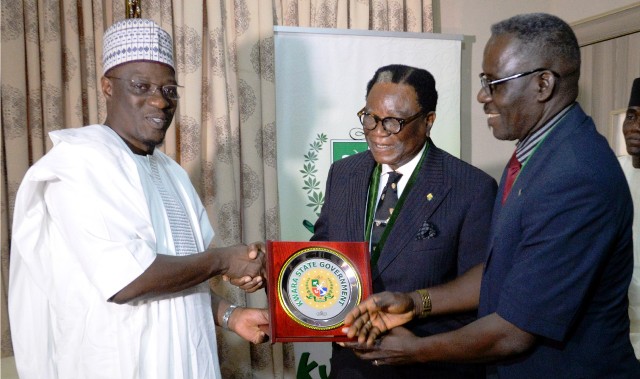Business
COVID-19 Pandemic May Delay NSE’s Demutualisation Plan

Strong indications emerge, yesterday that the Nigerian Stock Exchange (NSE) demutualisation exercise is being delayed by the lockdown due to COVID-19 pandemic.
Demutualisation of a stock exchange is a process by which a non-profit, member/brokers-owned mutual exchange is converted into a profit-seeking shareholder corporation, open to members of the public.
Demutualising an exchange therefore transforms it from being owned by members or brokers, to one with a different governance structure where members of the public can buy shares.
The NSE’s initial demutua-lisation timetable shows that the exercise will be completed on April 24 but dealings members have expressed concern that the ongoing coronavirus pandemic is affecting the process.
The NSE had on March 4, held Court-Ordered Meeting and Extra-Ordinary General Meeting (EGM) where members approved the planned demutualisation and also approved the appointment of the inaugural Board of Directors.
According to the scheme of arrangement for the demutualisation, the final approval for the demutualisation would be obtained from the Securities and Exchange Commission (SEC) on April 22.
Confirming the development, Malam Garba Kurfi, the Managing Director, APT Securities and Funds Ltd. told The Tide source that the ex-change had commenced the distribution of shares to qualified members.
Kurfi said that the distribution of the shares was being delayed by the present lockdown in some parts of the country, especially Lagos, where majority of the dealing members were located.
“They sent us forms to give our details in order to credit us with the shares but the form needs your signatory, seal and this may not be available without opening the office,” he said.
Kurfi noted that dealing members could not submit the forms for the shares transfer without their seal.
He stated that the demutualisation process, no doubt, would be delayed because of the current situation of the country.
Kurfi said that court needed to approve the process endorsed by the members at the court-ordered meeting and EGM.
Professor of Economics, Olabisi Onabanjo University, Ago-Iwoye, Ogun, Prof. Sheriffdeen Tella said it was true that the stock exchange was still in operation in spite of the lockdown.
Tella who described it as being in partial operation, said the demutualisation exercise could not be concluded under the present uncertainties.
According to him, the deadline must be extended under this condition characterised by lots of constraints and uncertainties.
According to scheme of arrangement between the Exchange and shareholders/dealing member firms, each dealing member would get 6.01 million ordinary shares, while each ordinary members would get 2.44 million units post-demutualisation.
Following the demutualisation, N1.25 billion comprising 2.5 billion ordinary shares and 2.0 billion ordinary shares of 50k each, representing the issued share capital of newly demutualised Nigerian Exchange Group Plc would be registered with the Corporate Affairs Commission (CAC) and SEC respectively.
Transport
Automated Points Concession : FAAN Workers Gave 72hrs To Revise Decisions In PH

Transport
FAAN Announces Pick-Up Points for Go-Cashless Cards

Business
Fidelity Bank To Empower Women With Sustainable Entrepreneurship Skills, HAP2.0
-
Politics3 days ago
2027: NIGERIANS FAULT INEC ON DIGITAL MEMBERSHIP REGISTER DIRECTIVE
-

 Environment3 days ago
Environment3 days agoLAWMA Director Says Sweeping Reforms Have Improved Waste Collection
-
Politics3 days ago
LP Crisis: Ex-NWC Member Dumps Dumps Abure Faction
-

 Politics3 days ago
Politics3 days agoUmahi Dismisses Allegations On Social Media, Insists On Projects Delivery
-

 Sports3 days ago
Sports3 days agoAbia Not Sure To Secure continental Ticket
-
Politics3 days ago
NATASHA ELECTRIC VEHICLES INITIATIVE IN KOGI CENTRAL
-
Sports3 days ago
La Liga: Yamal Records First Career Hat-trick
-
Politics3 days ago
IT’S A LIE, G-5 GOVS DIDN’T WIN ELECTION FOR TINUBU – SOWUNMI

